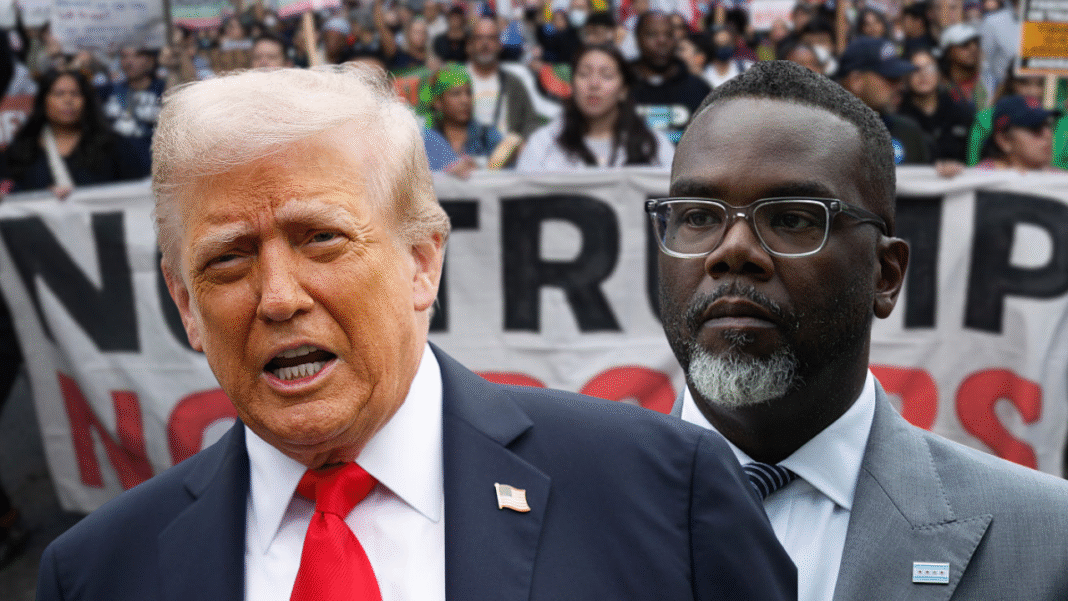In recent weeks, President Donald Trump has reignited a contentious conversation by threatening to deploy the National Guard to Chicago, a move that promises to set off a complex political and legal confrontation in a city and state governed by Democrats. This announcement came amid increasing tensions regarding crime rates and public safety in the Windy City, which Trump described in stark terms, labeling it a “death trap.”
During a press briefing at the White House, the President emphatically stated, “I’m going to Chicago early.” His comments followed a troubling week in the city, reporting that 11 people had been killed and 38 shot, underlining his argument for federal intervention. Trump’s rhetoric suggested not only urgency but an implicit criticism of local governance, directing his ire at Illinois Governor J.B. Pritzker, whom he dismissed as “nothing.”
Interestingly, this latest threat follows a legal setback for Trump regarding a similar proposal in California. A federal court ruled against his National Guard deployment in Los Angeles, deeming it illegal. Post-ruling, Trump hinted at reconsidering Chicago, leaving the door open for federal action despite the potential pushback he anticipated from local Democrats.
Notably, Trump recently opted to send the National Guard to Memphis instead, where he found a more cooperative political climate, coordinated with Republican Governor Bill Lee and the city’s Democratic mayor. This decision demonstrates a strategic pivot in how the President approaches crisis management, opting for areas where he could align with local leadership rather than face outright opposition.
Despite these shifts, Trump insisted during his briefing that Chicago remained next on his list following Memphis. His remarks imply a readiness to clash with Democratic leaders in Illinois, an inclination likely fueled by the broader political narrative surrounding law enforcement and public safety. He suggested that a more proactive posture from Governor Pritzker would be advantageous, saying, “If Pritzker is smart, he’d say, ‘Please come in.’”
Political implications abound in this scenario, as Chicago’s Mayor Brandon Johnson has already responded proactively by signing a “Right to Protest” executive order. This initiative aims to safeguard residents’ First Amendment rights, especially anticipating potential conflicts arising from Trump’s proposed intervention. The order instructs the Chicago Police Department to work alongside protest organizers, ensuring that lawful demonstration rights are respected, even amid federal interference.
Adding a layer of complexity is the recent ruling by federal Judge Charles Breyer, who articulated concerns about Trump’s military deployments infringing upon legal boundaries. He argued that such actions risk establishing a “national police force” under direct presidential command, conflicting with the Posse Comitatus Act, which explicitly limits military involvement in civilian law enforcement duties. This ruling not only questioned the legality of Trump’s actions but also set a precedent that could impact his authority moving forward.
The tensions simmering around this issue reveal deeper societal divides and raise significant questions about governance, law enforcement, and civil rights in America. As both Trump and local leaders prepare for an inevitable showdown, the ramifications of this political spectacle will surely resonate far beyond the immediate stakes in Chicago.



